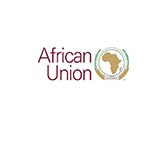Learning partnerships for gender-transformation (LP4GT) in South Africa
8 July 2022
African Regional Community of Practice for Gender and Health
24 April 2023
Team Members
*indicates student or postdoctoral fellow
- Woldekidan Amde
- T.K. Sundari Ravindran
- Tanya Jacobs
- Kéfilath Bello
Gender-transformative research in Africa: collective learning and synthesis to improve sexual reproductive and maternal health rights and services
The overall aim of the project (February 2022-May 2025) is to foster a strengthened community of researchers and policymakers informed, connected and empowered to use gender-transformative frameworks and methods in their research and practice.
Project period
01 February 2022 – 31 May 2025
Project Summary
A growing body of research shows that gender-transformative approaches can contribute to sustained improvements to sexual, reproductive and maternal health outcomes. Gender-transformative approaches challenge underlying gender inequalities and power structures to overcome restrictive sexual and gender norms. These norms are based on social, cultural and/or religious beliefs and practices that can negatively impact the sexual and reproductive rights of young people, women, stateless groups, displaced populations, Indigenous groups and people with non-heterosexual orientation.
Despite this recognition and modest increases in programming using gender-transformative approaches, a very thin body of evidence currently exists on if, how and in what contexts gender-transformative approaches can influence sexual, reproductive and maternal health outcomes. Moreover, there is a lack of appropriate evaluative frameworks and metrics that can be used to measure change and compare across different programs.
This project will contribute toward filling the knowledge and practice gaps on the gender-transformative paradigms, conceptual frameworks, research designs and methods and knowledge-translation strategies that can help improve sexual, reproductive and maternal health rights and services in low- and middle-income countries (LMICs). It aims to produce: a co-created framework to use gender-transformative research of sexual, reproductive and maternal health rights and services in Africa; a map of relevant research paradigms, frameworks, methodologies and metrics; and synthesis documents, blogs, podcasts, policy briefs and a journal supplement geared to make voices from Africa on gender transformation more visible. This enriched body of knowledge will be informed by LMIC-led community-based implementation research efforts.
A special feature of this project is that it will carry out its own research, as well as work across the other six grants in the cohort (listed below) to support cross-cohort synthesis, networking, learning, and creation of knowledge products.
- Shifting gender norms for improved maternal and adolescent health in The Gambia and Ghana
- Gender-transformative approaches to address unmet adolescent mental, sexual, and reproductive health needs in Ghana, Niger, and Burkina Faso
- Gender-transformative and intersectional approach to youth-friendly sexual and reproductive health services in Nigeria
- Action to empower adolescent mothers in Burkina Faso and Malawi to improve their sexual and reproductive health
- Learning partnerships to support gender-transformative innovations in adolescent and young people’s sexual and reproductive health in South Africa
- Mazan Daga and adapted care for better maternal health in Niger
Funder
- International Development Research Centre (IDRC)
Partners and Collaborators
- Society for the Study of Women’s Health (SSWH), The Gambia – https://www.sswhgam.com/
- Youth Harvest Foundation Ghana (YHFG), Ghana – https://yhfg.org/
- Ghana Health Services, Ghana – https://www.moh.gov.gh/ghana-health-service/
- Laboratoire d’Etudes et de Recherche sur les Dynamiques Sociales et le Développement Local (LASDEL), Niger – https://www.lasdel.net/
- Institut Africain de Santé Publique (IASP), Burkina Faso – https://iasp-bf.org/
- University of Nigeria, Nigeria – https://www.unn.edu.ng/
- African Population and Health Research Centre (APHRC), Kenya – https://aphrc.org/
- Institut Supérieur Des Sciences De La Population (ISSP), Burkina Faso – http://www.issp.bf/
- Centre for Social Research, Malawi – https://www.csrunima.mw/
- l’Association des Sages-Femmes du Niger (ASFN), Niger – https://gradeafrica.org
- Direction Régionale de la Santé de Maradi, Niger
- Networking HIV and AIDS Community of Southern Africa (NACOSA), South Africa – https://www.nacosa.org.za

